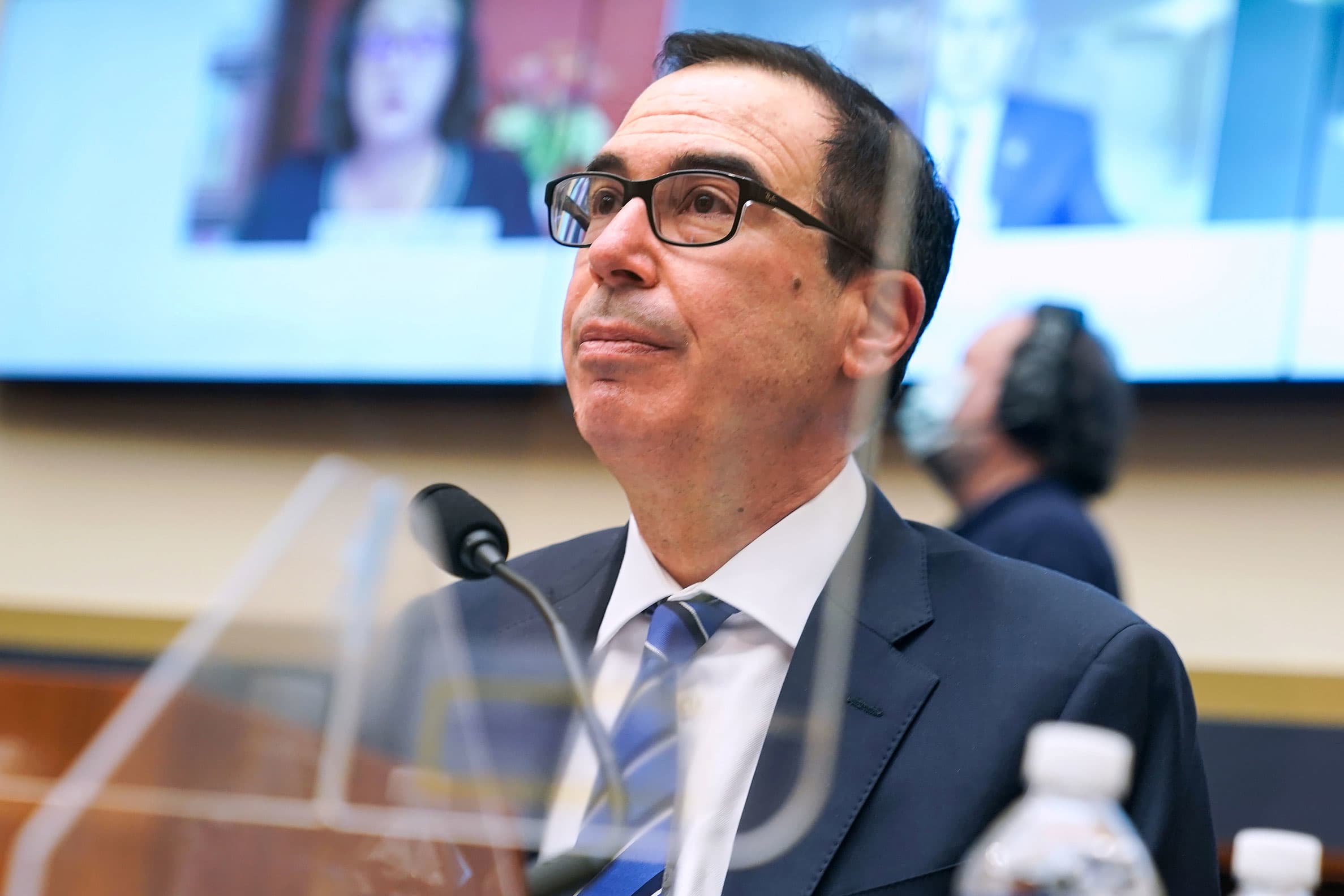On Wednesday, Steven Mnuchin, the former Treasury Secretary in President Donald Trump’s administration, told CNBC that his private equity firm is leading a $275 million investment in cybersecurity firm Cybereason in an effort to strengthen crackdowns on ransomware attacks. “This has been something I’ve been focusing on for a long time and is a major focus of our new business,” he said. “It has best-in-class technology, a worldwide reach, and a great management team,” Mnuchin says. His firm, Liberty Strategic Capital, is investing $200 million, while Neuberger Berman and SoftBank are each putting in $75 million. Mnuchin will join the Cybereason board of directors. Cybereason previously received $389 million in funding from SoftBank, Lockheed Martin, and venture capital firms CRV and Spark Capital. “We’re going to accelerate our growth. Right now, what we see is a kind of massive pressure on companies when it comes to ransomware,” said Cybereason CEO Lior Div, who appeared on “Squawk Box” with Mnuchin. In recent years, it has disclosed a number of scams, including a high-profile breach in which hackers breached a dozen worldwide telecoms organizations and stole enormous amounts of personal and corporate data. The Boston-based firm has its origins in Israel’s thriving digital start-up scene, and its 800 workers currently work across Israel, Japan, Europe, and the United States. This year, Cybereason was placed No. 32 on CNBC’s Disruptor 50 list, which was announced in May. Mnuchin and Div both expect Cybereason to go public at some point, but neither of them gave a specific timeline. “From our standpoint, this is a long-term investment, so it’s something that will hold for a very long time whether the company is public or private,” Mnuchin said, referring to newly public SentinelOne, which was No. 4 on the list. “I don’t care when they do the IPO; we’ll do it when the time comes,” Div told CNBC in May. “But the objective right now is to spend the funds, build the business, and focus on the customers.” Cybereason earned around $120 million in annual recurring revenue at the end of last year, according to Div. SoftBank and its affiliate companies invested $200 million in the company in 2019, valuing it at roughly $1 billion. Mnuchin openly addressed cybersecurity issues, notably in the banking industry, during his stint as Treasury Secretary in the Trump administration, from 2017 to 2021. According to Romanian cybersecurity firm Bitdefender, reported global ransomware assaults grew by 485 percent in 2020 compared to the previous year. Recent high-profile hacks, such as those involving Colonial Pipeline and IT firm Kaseya, have heightened concerns about the problem. Mnuchin said he hopes that regulations on ransomware, particularly for cryptocurrencies like bitcoin, will continue to ensure “complete transparency” in digital payments. He believes the first priority should be to crack down on ransomware payments, adding that businesses should be obliged to obtain permits from the Treasury before making payments. “I feel this is one of the few areas that has been ahead of the curve in terms of spending money,” he said. “This is an area where people need to continue to invest, and from my perspective, technology to assist national security is one of our top objectives.” Mnuchin founded Liberty Strategic Capital in Washington, D.C., after his tenure as Treasury Secretary ended earlier this year. Before joining the administration, he worked as a Hollywood financier, helping to finance films like James Cameron’s “Avatar” and others. Steven Mnuchin is a former Goldman Sachs executive.Correction: According to CNBC, Steven Mnuchin’s private equity firm is leading a $275 million investment in cybersecurity firm Cybereason. The figure in an earlier edition was misrepresented in the headlines./n
Read MoreEx-Trump Treasury Secretary Steven Mnuchin’s firm leads $275 million investment in Cybereason
2021-07-14T16:07:52-04:00July 14th, 2021|





